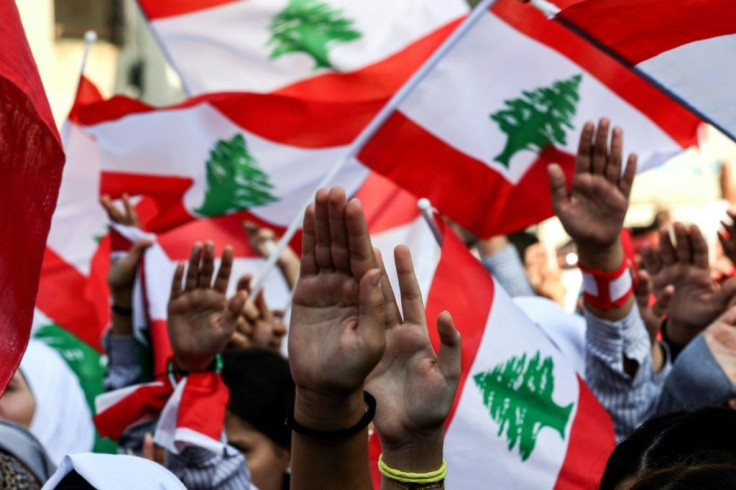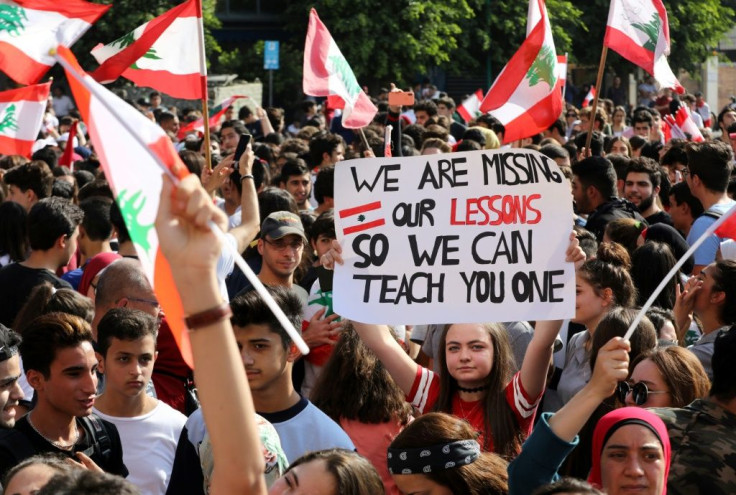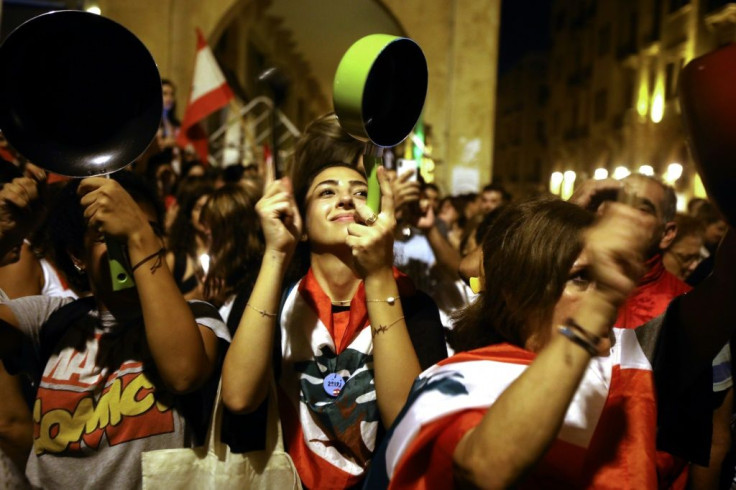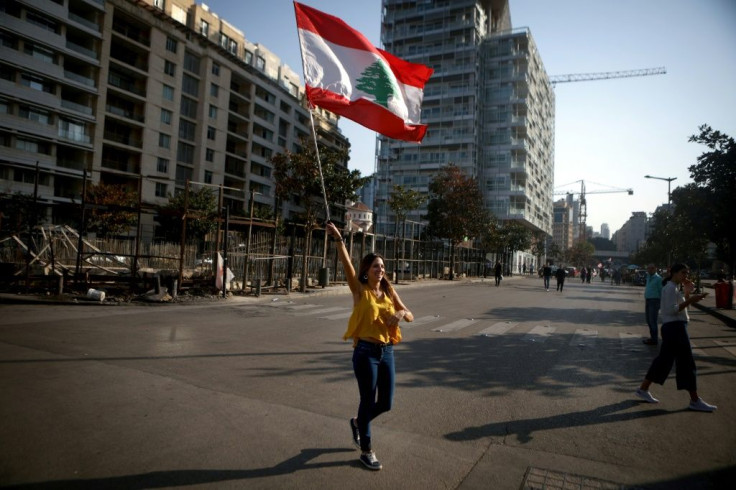Students Take To Lebanon Streets As Protests Grow

Thousands of students took to the streets across Lebanon on Thursday to demand a better future as anti-government protests entering their fourth week continued to mushroom.
Pupils carrying schoolbags banged pots and pans, picking up the baton from thousands of women who had ignited the main protest site in Beirut on Wednesday evening.
"All of them, all of them are thieves," chanted one pupil in Beirut, perched on the shoulders of a schoolmate outside the education ministry.
In the northern city of Tripoli, where mobilisation has been relentless since the protests erupted on October 17, demonstrators took down politicians' portraits from city buildings and replaced them with the Lebanese flag.
Grievances initially focused on poor infrastructure and abysmal public services quickly grew into an unprecedented nationwide push to drive out an elite which protesters say has ruled the country like a cartel for decades.
Thousands of university and high school students streamed into the streets of Beirut and other towns to boost the protests.
Setting off coloured flares and waving Lebanese flags, students blocked off traffic in the capital, demand the wholesale removal of the political class and its sectarian-based power-sharing system.
One placard bore the question: "What if we had a young, educated, ethical and competent political leadership?"

"We go to school, we work hard and in the end we pick up diplomas so we can just hang around and stay at home doing nothing," said Marwa Abdel Rahman, 16.
Youth unemployment stands at more than 30 percent in Lebanon, from which many young people were seeking to emigrate until last month's rallies created a rare moment of national hope and unity in a country often characterised by its divisions.

What started as a spontaneous, apolitical and leaderless popular movement is becoming increasingly organised, with activists coming together to synchronise marches and stunts across the country.
After blocking off roads for days, protesters have switched to preventing access to institutions seen as the most egregious examples of mismanagement and corruption.
Students in Tripoli blocked employees from clocking in for work at the telecommunications ministry building.
"We want to keep up the pressure on our corrupt political leaders, who are not addressing our demands," said Samir Mustafa, an unemployed 29-year-old.

Prime Minister Saad Hariri tendered his government's resignation on October 29 in response to pressure from the street.
That did little for his popularity with protesters in Tripoli, where giant posters of him were replaced with the Lebanese flag in several locations, a stunt that was met with applause by residents.
"The message is that Tripoli doesn't belong to any leader," said Yusef Tikriti, a 23-year-old activist.
The cabinet has stayed on in a caretaker capacity but efforts to form a new line-up seem to be stalling, with each faction in the outgoing coalition seeking to salvage some influence.
Hariri met President Michel Aoun on Thursday and said that consultations were ongoing with all political players but gave no details.
The World Bank on Wednesday warned that the failure to quickly form a government that meets protesters' demands could lead to an even sharper economic downturn.
The judiciary took a number of measures aimed at tackling corruption. On Thursday, it charged the customs chief with wasting public funds and questioned a former prime minister, Fouad Siniora, over extra-budgetary spending.
Protesters gathered outside the ex-premier's Beirut residence in the evening.
Aoun reportedly remains bent on keeping Foreign Minister Gebran Bassil, his son-in-law and arguably the most reviled politician for the protesters, in a key position.
For his part, parliament speaker Nabih Berri, a veteran player whose supporters tried to disrupt the protests last month, has not publicly commented at all on the protests sweeping the country.
But late Thursday, he told his NBN television channel he was determined that Hariri should remain premier as it was in Lebanon's interest.
In a country where weapons are widespread and leading political parties routinely resort to hired thugs, the protests -- and attempts by the security forces to quell them -- have been remarkably bloodless.
On Wednesday night, thousands of women staged a candle-lit rally on Martyrs Square, banging pots and pans with wooden spoons to set downtown Beirut abuzz.
The commotion, broadcast live on several television channels, turned contagious and for several minutes residents could be heard across the city chiming in from home with their own utensils.
aa-lar-bur/ah/hc
© Copyright AFP {{Year}}. All rights reserved.





















